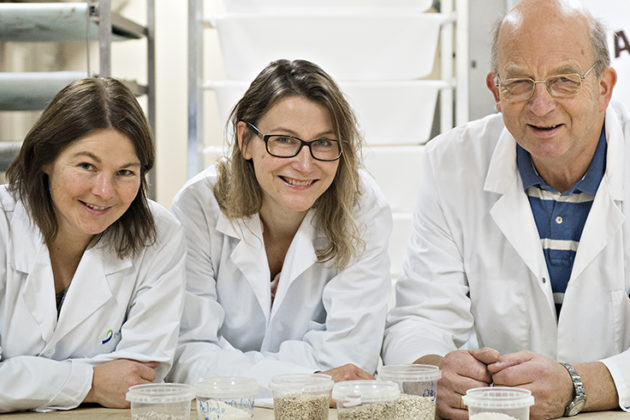Extruded grains and intestinal flora

Nofima scientists have investigated how intestinal flora – microbiota - are affected by unprosessed or extruded whole grains.
Recent research suggests that the composition of microbiota in our intestine is a key to good health, and it is well known that whole grains and fibre from grains reduce the risk of various lifestyle diseases, such as cardiovascular disease and diabetes. Our scientists wanted to find out whether it matters how the grain is processed. They carried out tests on young pigs because the pig’s anatomy is very similar to that of humans.
Today grain is commonly extruded to preserve or improve the function of the fibre, at the same time as the structure of the grain can be altered. Extrusion is a process whereby wholegrain flour is heated to 120–140°C, while it is being kneaded, before being pressed through a die to obtain the desired shape, explains scientist Stefan Sahlstrøm.
Breakfast cereals such as Cheerios are an example of extruded grain.
Whole grains
“Our experiments shows that the pigs that were feed unprocessed whole grains, both barley and oats, had a richer intestinal microbiota with more beneficial bacterial strains than the pigs that were feed extruded whole grains,” says Nofima scientist Birgitte Moen.
The intestines of the pigs that had eaten unprocessed whole grains had a higher proportion of beneficial lactic acid bacteria such as bifidobacteria and lactobacilli, as well as more butyric acid. This is positive because butyric acid has an anti-inflammatory and anti-cancer effect in the intestine.
Healthy grain products
These results are very useful for food producers wanting to develop new, healthy grain products.
Nofima scientists have previously found that extrusion increases absorption of antioxidants, and that fermenting barley and oats with lactic acid bacteria increases the antioxidant activity significantly.
Research Funding for Agriculture and Food Industry and the Research Council of Norway.
